
ENID | Enabling Innovation with Data Science & AI at ETH Zurich


Prof. Olivier Verscheure is the director and founder of the Swiss Data Science Center (SDSC). Olivier also co-leads a joint training program between EPFL and HEC Lausanne, specifically designed for senior executives. Since 2018, Olivier has been a member of the Board of Directors of Lonza, a global leader in the life sciences sector. This company provides products and services to the pharmaceutical, biotechnology, and specialized healthcare industries.Olivier began his career at IBM Research after earning his Ph.D. in computer science from EPFL. He held several research and leadership positions at the IBM T. J. Watson Research Center in New York and co-created and co-directed the IBM Research center in Dublin, Ireland, before joining the EPFL in 2016.


Silvia holds an MSc in Computer Science from EPFL and a PhD in Computer Science from the University of York, UK. She has been a senior research fellow at the University of Trento and later at Politecnico di Milano, Italy. Here, she had the chance to work on Marie Curie and ERC projects relating to natural language processing. From 2012 to 2019, she was a Senior Manager and NLP expert at ELCA Informatique Switzerland, whose AI department she helped create and expand. Silvia joined the Swiss Data Science Center in 2019 and is currently its Chief Transformation Officer, in charge of the team leading organizations to digital transformation.


Anna joined SDSC as a Data Scientist focusing on industry collaborations in July 2019. She completed her PhD in Bioinformatics at the University of Luxembourg, where she analysed large-scale heterogeneous datasets and leveraged multiple disciplines: Statistics, Network Analysis, and Machine Learning. Before joining SDSC, Anna worked as a Data Scientist at Deloitte Luxembourg, with a focus on computer vision and time-series analysis.Currently, Anna is a Principal Data Scientist based at the ETH Zurich office, where she leads biomedical collaborations with industry partners. Anna works on a range of projects: protein properties prediction, biomanufacturing optimization, statistical model evaluation and others.


Matthias Galipaud obtained his PhD in evolutionary biology in 2012 from the University of Burgundy in Dijon (France), and held postdoctoral positions as a mathematical biologist at the university of Bielefeld (Germany) and the university of Zurich, where he researched the evolutionary theories of aging and mate choice. In 2020, he became a data scientist, developing machine learning solutions for startups in Switzerland and Australia before joining the SDSC Innovation Team in November 2022.


Dan received an MSc in civil and environmental engineering from UC Berkeley and a Ph.D. from EPFL, where he developed models combining machine learning and geographic information systems to estimate renewable energy potentials on a large scale. After serving as a researcher/data scientist at Unisanté (Lausanne) and completing a one-year postdoc at the Quebec Artificial Intelligence Institute (Mila) in Montréal, Dan joined the SDSC Innovation team. His work has generally been focusing on crafting and tailoring machine learning methods and deep learning architectures for a variety of domains, most notably the spatio-temporal modeling and forecasting of environmental and energy related variables, as well as multiple applications in public health research.


Saurabh Bhargava, joined the SDSC as a Principal Data Scientist in the Industry Cell at the Zürich office in 2022. Saurabh previously worked in the retail sector and the advertising industry in Germany. He lead and built various data products for customers using state of the art machine learning methods and industrializing them thereby adding value for the customers. He completed his PhD from ETH Zürich in June 2017 specializing in machine learning applications on Audio data. He obtained his Master’s and Bachelor’s degrees from EPFL and Indian Institute of Technology (IIT), Roorkee, India in 2011 and 2009 respectively. His interests and expertise are in combining state of the art data science and data engineering tools for building scalable data products.
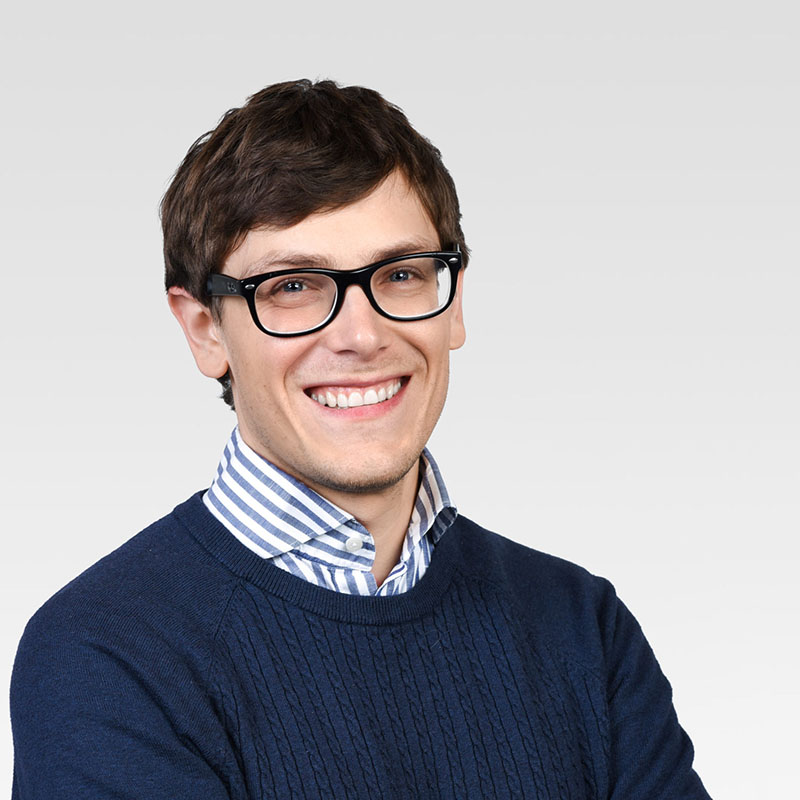

Christian joined the SDSC in July 2021 as a data scientist in the industry cell. Before that he worked at the Media Technology Center at ETH Zurich to develop new ML technology for their industry partners. He completed his Master's degree in Mathematics at ETH Zurich (2017) with focus on algorithmics and machine learning. After his studies he worked as a online marketing data analyst in the news publishing business. His expertise lies in statistics, NLP and software engineering.


Before joining SDSC, Arshjot Khehra received his MSc in Artificial Intelligence from USI Lugano, where he completed his thesis on hierarchical graph reinforcement learning. Previously, he worked for 4+ years across India and Singapore gaining data science experience in insurance, logistics, and manufacturing sectors. He also holds a BSc in Industrial Engineering from PEC Chandigarh. Over the course of his career, Arshjot worked on a wide array of projects, such as, handwritten text recognition and generation, voice matching across phone call recordings, policy lapse rate prediction for customer retention, and automated insurance claim processing.
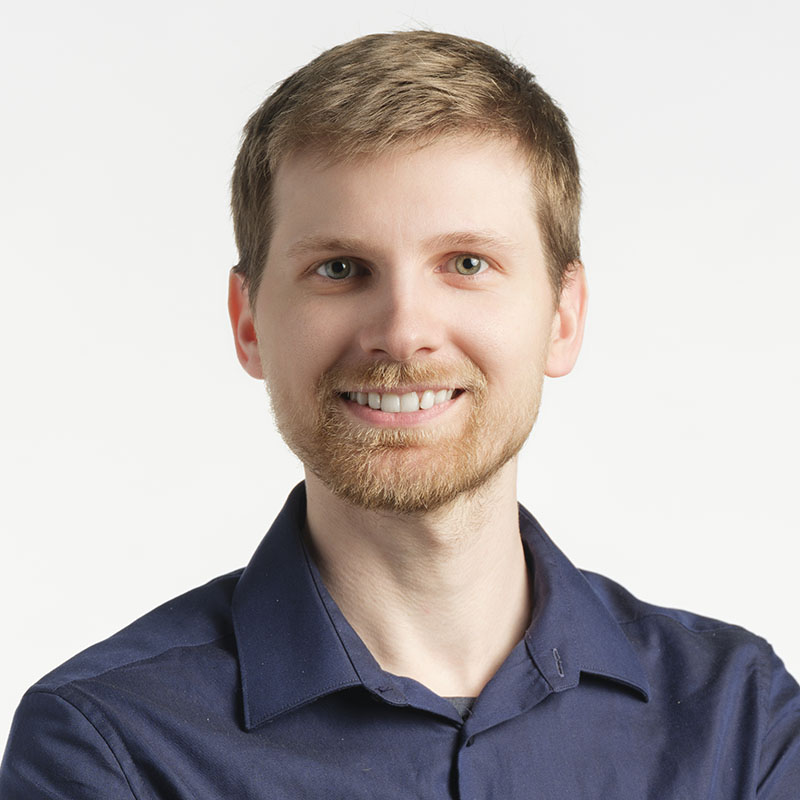

Thibaut holds a B.Sc in Computer Science from HEIG-VD. Before joining the SDSC, he worked in startups where he developped a diverse skill set combining cloud infrastructure, database and application development. Thibaut is very enthusiatic about new technologies and best coding practices and he is looking forward to supporting the team and its projects.
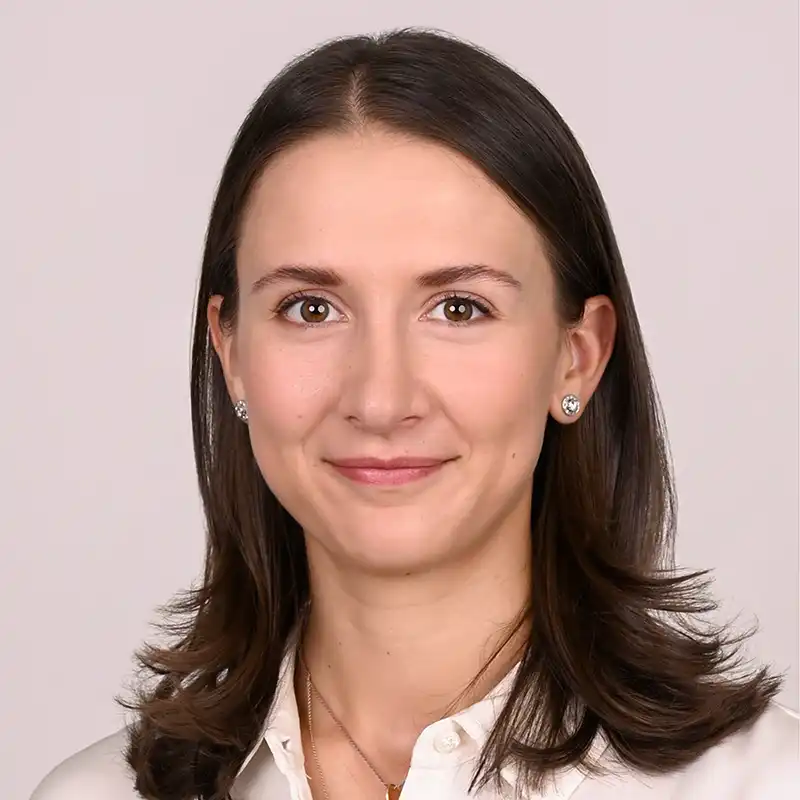

Paulina Körner joined the SDSC in September 2025 as a Data Scientist in the Innovation team in Zurich.
Paulina holds an MSc in Environmental Science from ETH Zürich and completed an MPhil in Machine Learning and Machine Intelligence at the University of Cambridge. She has worked as a data science intern in Alpine Remote Sensing and as a research assistant at ETH Zürich, where she focused on automating chemical risk evaluations. She also gained consulting experience at South Pole, supporting clients in designing decarbonization roadmaps. Paulina is particularly interested in interpretable machine learning and in applying AI to address real-world challenges in environmental science, industry, and the public sector.

Presentation
Organizations generate massive amounts of data, yet many struggle to turn it into results. This unique executive program gives decision-makers a practical, strategic framework to identify high-value opportunities, avoid common pitfalls, and lead successful data-driven initiatives.
Why Join
ENID helps leaders navigate fast-changing technologies and rising expectations by focusing on real-world impact. You will learn how to evaluate data and AI opportunities, build trust in analytics, and drive innovation across your organization.
Who Should Attend
Ideal for executives, CDOs, digital and innovation leaders, project owners, and managers responsible for data initiatives and data-driven decisions. No technical or coding knowledge is required.
What You Will Learn
+ Data & AI strategy for leaders: Understand key data science, machine learning and AI concepts and their business implications.
+ Opportunity evaluation: Assess feasibility, risk, cost, and value using proven frameworks.
+ From concept to MVP: Explore how high-impact data products are designed and tested.
+ Responsible & trustworthy AI: Address data quality, ethics, explainability, and governance.
+ Leading transformation: Measure impact, manage stakeholders, and support adoption.
Your Outcomes
You will leave with practical business knowledge, a clear roadmap for implementing data science projects, tools for leading data-driven change, and a network of peers tackling similar challenges.
Delivered by the Swiss Data Science Center
ENID is taught by experts from the Swiss Data Science Center – a joint initiative of ETH Zurich and EPFL – combining academic discipline with hands-on industry insight. The program was created with the support of EPFL Extension School.
Details
ENID– Enabling Innovation with Data Science & AI
A 5-day journey from strategy to AI implementation, delivering executive impact

For experienced professionals and executives wishing to steer data science initiatives and generate business impact. The course will be given in English.
Instructors
- Prof. Olivier Verscheure, Executive Director, Swiss Data Science Center (SDSC) - EPFL & ETH Zurich
- Dr. Silvia Quarteroni, Head of Innovation, SDSC - EPFL & ETH Zurich
- Dr. Anna Fournier, Principal Data Scientist, SDSC - ETH Zurich
- Dr. Matthias Galipaud, Senior Data Scientist, SDSC - ETH Zurich
- Dr. Dan Assouline, Senior Data Scientist, SDSC - EPFL
- Dr. Saurabh Bhargava, Principal Data Scientist, SDSC - ETH Zurich
- Christian Schneebeli, Senior Data Scientist, SDSC - ETH Zurich
- Arshjot Khehra, Senior Data Scientist, SDSC - ETH Zurich
- Paulina Körner, Data Scientist, SDSC - ETH Zurich
- Thibaut Loiseau, Machine Learning Engineer, SDSC - EPFL
- Kyle van de Langemheen, Machine Learning Engineer, SDSC - EPFL
Program Director
- Prof. Olivier Verscheure, Executive Director, Swiss Data Science Center (SDSC)
Certification
An ETH Zurich certificate will be delivered at the end of the course - a minimum attendance of 80% is required.
Course venue
ETH Zurich - "Swiss AI Tower" Andreasturm, Andreasstrasse 5, 8092 Zurich-Oerlikon, Switzerland
Room 16+17 at the 14th floor
Prerequisites
- Prior experience working with data in a practical context, such as data reporting, visualization, and statistical analysis using structured data, is required.
- Participants are required to bring their own laptop for use during hands-on practical exercises (installation of KNIME Analytics Platform free software is necessary for hands-on experience.)
- No coding experience required.
Course fee
4000.- Swiss Francs
General discount: 10% special discount for ETH employees and alumni, as well as SDSC partners.
A special 10% year-end discount is offered for all registration in this time period.
Registration
Please register by January 16th, 2025, through the ETH Zurich School for Continuing Education website here.
Contact
For any other course-related questions, please contact Dr. Anna Fournier at anna.fournier@sdsc.ethz.ch.
Programme
Other events
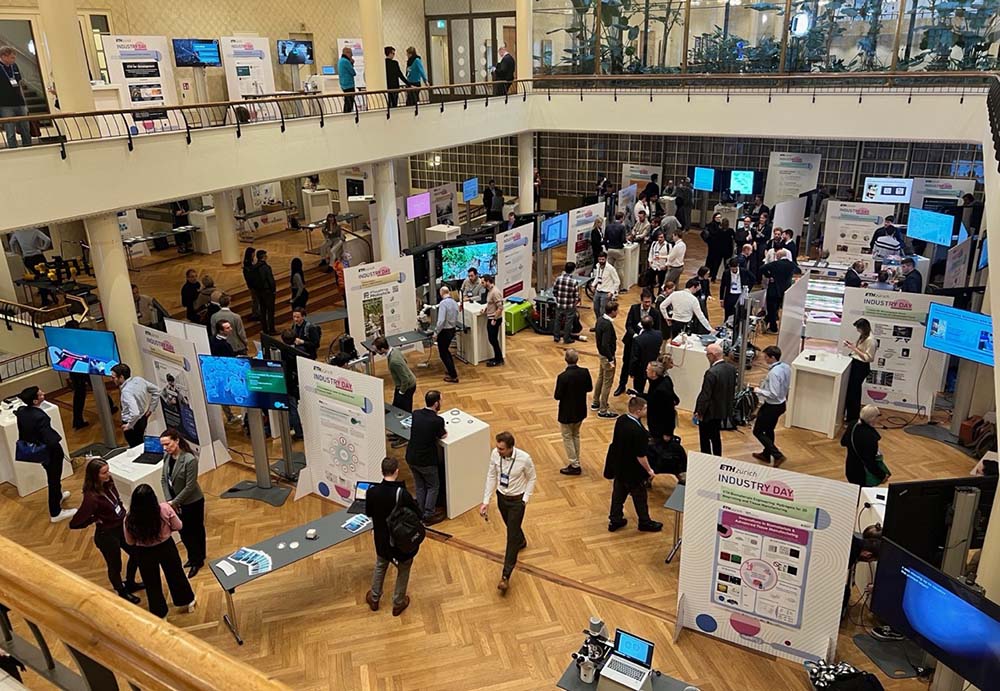
ETH Industry Day 2025 @ Open-i


Saurabh Bhargava, joined the SDSC as a Principal Data Scientist in the Industry Cell at the Zürich office in 2022. Saurabh previously worked in the retail sector and the advertising industry in Germany. He lead and built various data products for customers using state of the art machine learning methods and industrializing them thereby adding value for the customers. He completed his PhD from ETH Zürich in June 2017 specializing in machine learning applications on Audio data. He obtained his Master’s and Bachelor’s degrees from EPFL and Indian Institute of Technology (IIT), Roorkee, India in 2011 and 2009 respectively. His interests and expertise are in combining state of the art data science and data engineering tools for building scalable data products.


Anna joined SDSC as a Data Scientist focusing on industry collaborations in July 2019. She completed her PhD in Bioinformatics at the University of Luxembourg, where she analysed large-scale heterogeneous datasets and leveraged multiple disciplines: Statistics, Network Analysis, and Machine Learning. Before joining SDSC, Anna worked as a Data Scientist at Deloitte Luxembourg, with a focus on computer vision and time-series analysis.Currently, Anna is a Principal Data Scientist based at the ETH Zurich office, where she leads biomedical collaborations with industry partners. Anna works on a range of projects: protein properties prediction, biomanufacturing optimization, statistical model evaluation and others.


Nora earned her Ph.D. in Computer Science/Bioinformatics from the University of Tübingen, where she focused on the in silico design of peptide-based vaccines using combinatorial optimization and machine learning. During her postdoctoral fellowship at Memorial Sloan Kettering Cancer Center in New York, and later as a staff scientist at the New York Genome Center, she worked on metagenomics, infectious diseases, and cancer. In 2015, Nora joined NEXUS Personalized Health Technologies at ETH Zurich where her focus shifted towards the management of clinical and biomedical research data. In May 2024, she joined the Swiss Data Science Center as Head of Biomedical Data Science.


Marisol has a degree in Law and more than 15 years of experience working as a notary officer in Madrid. After relocating to Switzerland with her family, she obtained a certification to teach Spanish as a foreign language, dedicating four years to teaching Spanish online to students of all ages and backgrounds. Marisol has returned to her professional roots as an administrative assistant, joining the SDSC team in June 2023.
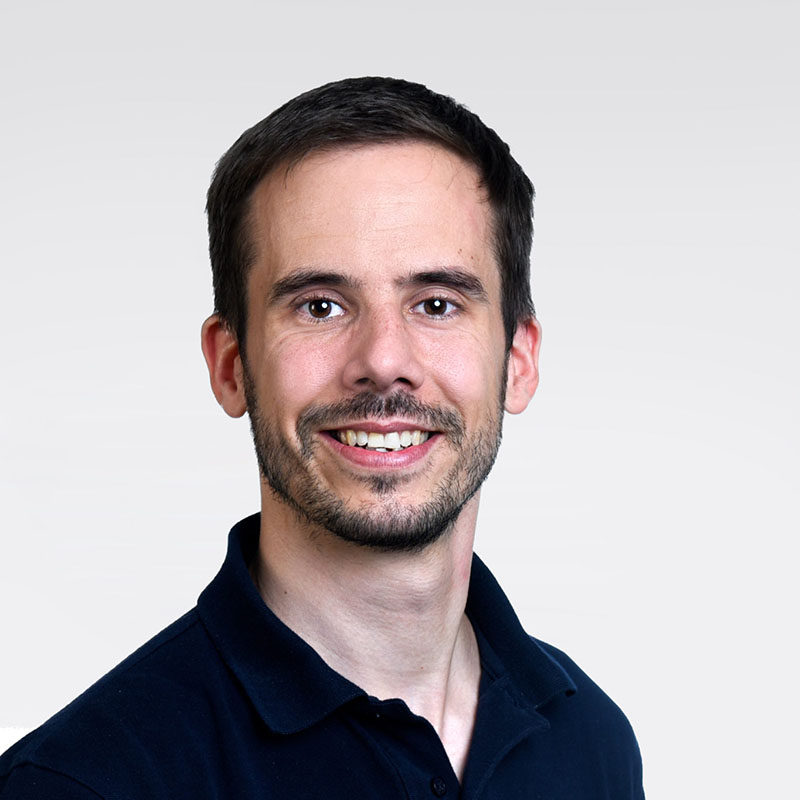

Luis is originally from Spain, where he completed his bachelor's studies in Electrical engineering, and the Ms.C. on signal theory and communications, both at the University of Seville. During his Ph.D. he started focusing on machine learning methods, more specifically message passing techniques for channel coding, and Bayesian methods for channel equalization. He carried it out between the University of Seville and the University Carlos III in Madrid, also spending some time at the EPFL, Switzerland, and Bell Labs, USA, where he worked on advanced techniques for optical channel coding. When he completed his Ph.D. in 2013, he moved to the Luxembourg Center on Systems Biomedicine, where he switched his interest to neuroscience, neuroimaging, life sciences, etc., and the application of machine learning techniques to these fields. During his 4 and a half years there as a Postdoc, he worked on many different problems as a data scientist, encompassing topics such as microscopy image analysis, neuroimaging, single-cell gene expression analysis, etc. He joined the SDSC in April 2018. As Lead Data Scientist, Luis coordinates projects in various domains. Several projects focus on the application of natural language processing and knowledge graphs to the study of different phenomena in social and political sciences. In the domains of architecture and engineering, Luis is responsible for projects centered on the application of novel generative methods to parametric modeling. Finally, Luis also coordinates different projects in robotics, ranging from collaborative robotic construction to deformable object manipulation.

Study-a-thon: From Bits to Breakthroughs in Clinical AI Modeling


Oksana is a disruptive innovator bringing her positive energy to projects. Driven by her curiosity and can-do attitude she excels in industrial and academic contexts. Oksana earned her PhD in Life Sciences and Bioinformatics from the University of Lausanne after two MSc in Bioinformatics and in Information Systems from the University of Geneva. For more than 10 years, she has been committed to actively promoting the value of data science and advocating the best practices for reproducible and ethical research. She believes that Swiss Data Science Center is a key player in building a competitive data economy in Switzerland leveraging its innovative potential and renown commitment to quality.


As an EPFL Life Science Engineer, my main interest is to do science with an impact.FAIR principals guide my work style, and I strive for user-centric infrastructure to encompass data science in the biomedical and governmental spheres. I have experience in Global Health, working with multi-hospital surveillance system for pandemics, as well as training data scientist (thegraphcourses.org).My core side-interests lie in ocean conservation notably cetacean conservation, biodiversity, and untreated health problematics from lower and middle income countries.I have solid hard skills in problem-solving, data engineering in AI/ML, and have developed soft skills in creativity and social integration. I have acquired domain knowledge in a diversity of fields: from biology-related sciences such as human gut microbiology, epidemiology, and environmental sciences, as well as social sciences such as anthropology and psychology.I am always happy to engage with new people on innovative and impactful thematics so please do reach out !


Stefan has a background in Biology and decided to move towards evolutionary bioinformatics for both his MSc and PhD.Over the years, he developed a passion for the entire data analysis process: from collecting data, to analyzing and presenting results. Presentations, particularly opportunities for public speaking, are activities he enjoys since he values communication a lot. In order to follow this passion and deepen his knowledge on systems to collect and manage data, he joined SDSC in 2023 as a Biomedical Data Engineer.Outside work, Stefan is an avid reader of sci-fi books (but not only!), enjoys swimming, running, and biking both competitively and casually and enjoys plenty of activities with friends, especially when beer is involved.


Almut Lütge joined the ORDES team in Zurich as Biomedical Data Engineer, in January 2024.
Almut did both her Bachelor and Master in molecular biotechnology with a major in bioinformatics at the University of Heidelberg in Germany.
After her masters she worked as a research assistant on population genetics at the NTNU in Trondheim, Norway.
In 2018 Almut started her PhD about benchmarking of single cell analysis tools at the University of Zürich, followed by a short PostDoc in pharmaceutical immunology at ETH Zürich.
Almut enjoys data-driven problem-solving and highly value open science.

Energy Hack Days 2025


Roberto holds an M.Sc. and a Ph.D. in Particle Physics from the University of Torino, Italy. He has worked for several years in fundamental research as a senior fellow and data scientist at the CERN Experimental Physics division and on a research project supported by the Belgian National Fund for Scientific Research (FNRS). In 2018 he moved to EPFL to work on data mining and Machine Learning techniques for the built environment and renewable energies. He has started and led multiple collaborations with academic and industry partners in the energy domain. Roberto joined the SDSC in September 2021 as a Principal Data Scientist with the mission of accompanying industries, NGOs and international organizations through their data science journey.


Rok obtained a B.A. in Physics from Washington University in St.Louis in 2003. After obtaining his PhD in theoretical Astrophysics from the University of Washington in 2010, Rok spent several years as a Postdoctoral researcher at the Institute for Computational Science, University of Zürich. Seeking new challenges, he moved to the ETH Scientific IT Services group, where he helped researchers across different ETH domains solve their (big) data analysis problems. He specialized in optimizing and scaling up data analysis tasks by mapping them to high-performance computing resources. Since July 2017 he has been at the Swiss Data Science Center developing Renku, the Center's data science platform.

Open Pulse Mini Hackathon


As an EPFL Life Science Engineer, my main interest is to do science with an impact.FAIR principals guide my work style, and I strive for user-centric infrastructure to encompass data science in the biomedical and governmental spheres. I have experience in Global Health, working with multi-hospital surveillance system for pandemics, as well as training data scientist (thegraphcourses.org).My core side-interests lie in ocean conservation notably cetacean conservation, biodiversity, and untreated health problematics from lower and middle income countries.I have solid hard skills in problem-solving, data engineering in AI/ML, and have developed soft skills in creativity and social integration. I have acquired domain knowledge in a diversity of fields: from biology-related sciences such as human gut microbiology, epidemiology, and environmental sciences, as well as social sciences such as anthropology and psychology.I am always happy to engage with new people on innovative and impactful thematics so please do reach out !


Robin joined the SDSC in 2022. He received an MSc. in Management, Economics & Consumer Studies from the University of Wageningen in the Netherlands. After his studies, he developed himself into a consultant in the area of ontology & linked data modelling, working mostly in the domain of local and national infrastructure projects. He has a great interest in standardization efforts in the field of semantic web technology standards and is actively working at SDSC with clients and collaborators to stimulate their adoption.


Carlos Vivar Ríos joined the SDSC in 2023, where he is part of the Open Research Data and Engagement Unit (ORDES). As a multidisciplinary data engineer, he brings a diverse background in biology, cognitive sciences, and bioinformatics from the University of Malaga. His multifaceted professional career spans several disciplines, including genomics at RIKEN in Yokohama, multidimensional image analysis in microscopy at the University of Lausanne (UNIL), and cellular biology modeling at INRIA in Lyon. Carlos has been involved in a variety of projects, such as analyzing astrocyte calcium dynamics, de novo sequencing Solea senegalensis, drug repurposing for Alzheimer's based on GWAS studies, conducting geospatial analysis for linguistic corpora, and assessing drought through remote sensing. He is dedicated to advancing reproducible research methods and actively supports the open science movement.


Oksana is a disruptive innovator bringing her positive energy to projects. Driven by her curiosity and can-do attitude she excels in industrial and academic contexts. Oksana earned her PhD in Life Sciences and Bioinformatics from the University of Lausanne after two MSc in Bioinformatics and in Information Systems from the University of Geneva. For more than 10 years, she has been committed to actively promoting the value of data science and advocating the best practices for reproducible and ethical research. She believes that Swiss Data Science Center is a key player in building a competitive data economy in Switzerland leveraging its innovative potential and renown commitment to quality.
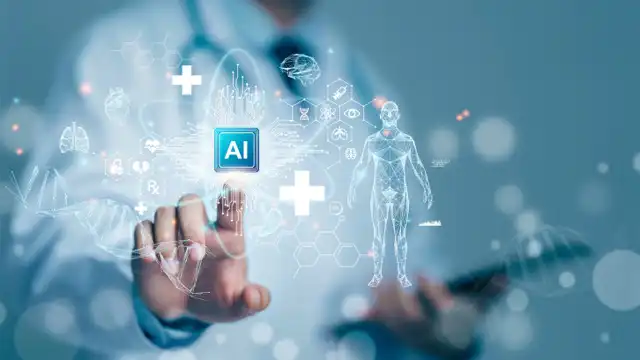
SDSC-Connect: Translating AI to Clinical Practice


Nora earned her Ph.D. in Computer Science/Bioinformatics from the University of Tübingen, where she focused on the in silico design of peptide-based vaccines using combinatorial optimization and machine learning. During her postdoctoral fellowship at Memorial Sloan Kettering Cancer Center in New York, and later as a staff scientist at the New York Genome Center, she worked on metagenomics, infectious diseases, and cancer. In 2015, Nora joined NEXUS Personalized Health Technologies at ETH Zurich where her focus shifted towards the management of clinical and biomedical research data. In May 2024, she joined the Swiss Data Science Center as Head of Biomedical Data Science.


Anna joined SDSC as a Data Scientist focusing on industry collaborations in July 2019. She completed her PhD in Bioinformatics at the University of Luxembourg, where she analysed large-scale heterogeneous datasets and leveraged multiple disciplines: Statistics, Network Analysis, and Machine Learning. Before joining SDSC, Anna worked as a Data Scientist at Deloitte Luxembourg, with a focus on computer vision and time-series analysis.Currently, Anna is a Principal Data Scientist based at the ETH Zurich office, where she leads biomedical collaborations with industry partners. Anna works on a range of projects: protein properties prediction, biomanufacturing optimization, statistical model evaluation and others.
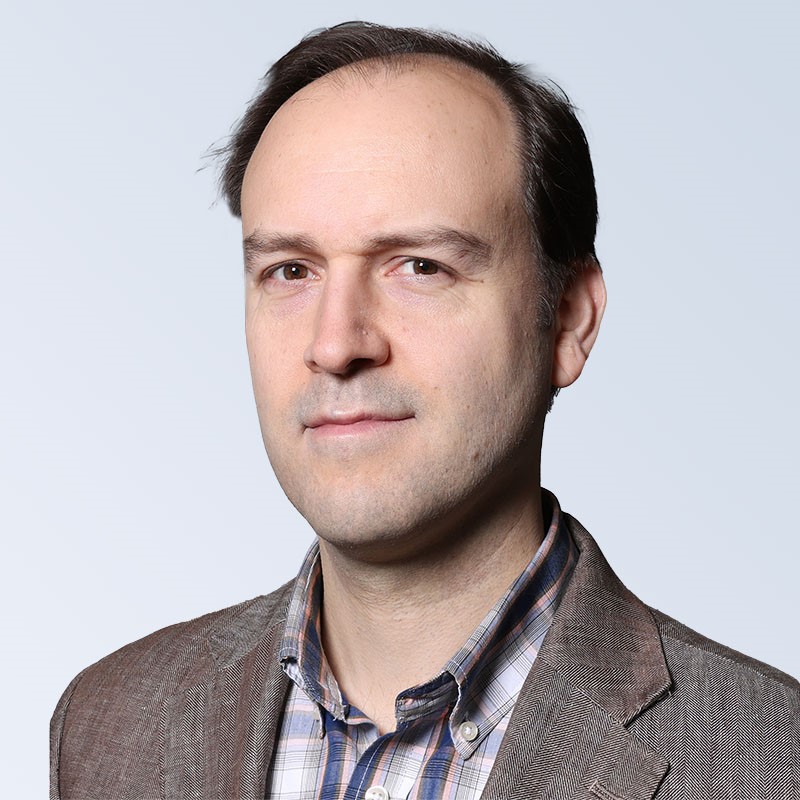

Guillaume Obozinski graduated with a PhD in Statistics from UC Berkeley in 2009. He did his postdoc and held until 2012 a researcher position in the Willow and Sierra teams at INRIA and Ecole Normale Supérieure in Paris. He was then Research Faculty at Ecole des Ponts ParisTech until 2018. Guillaume has broad interests in statistics and machine learning and worked over time on sparse modeling, optimization for large scale learning, graphical models, relational learning and semantic embeddings, with applications in various domains from computational biology to computer vision.


Snežana joined the SDSC industry team in June 2021 on a mission to advance adoption of modern data driven solutions in the domain of public health care. She has a background in experimental particle physics with a Diploma from the ETH Zurich and a PhD from the University of Geneva. Snežana pursued fundamental research in the field of high energy physics at CERN for nine years, harnessing the power of machine learning and statistical methods to uncover the traces of new physics in petabytes of proton-proton collision data and to develop innovative particle identification algorithms. Since 2018, Snežana served as a Data Science consultant, supporting partners from industries such as manufacturing, insurances, compliance services and online platforms in creating business value from internal and external data.


Marisol has a degree in Law and more than 15 years of experience working as a notary officer in Madrid. After relocating to Switzerland with her family, she obtained a certification to teach Spanish as a foreign language, dedicating four years to teaching Spanish online to students of all ages and backgrounds. Marisol has returned to her professional roots as an administrative assistant, joining the SDSC team in June 2023.
%20Medium.jpeg)
KI für Dienstleister im öffentlichen Raum


Saurabh Bhargava, joined the SDSC as a Principal Data Scientist in the Industry Cell at the Zürich office in 2022. Saurabh previously worked in the retail sector and the advertising industry in Germany. He lead and built various data products for customers using state of the art machine learning methods and industrializing them thereby adding value for the customers. He completed his PhD from ETH Zürich in June 2017 specializing in machine learning applications on Audio data. He obtained his Master’s and Bachelor’s degrees from EPFL and Indian Institute of Technology (IIT), Roorkee, India in 2011 and 2009 respectively. His interests and expertise are in combining state of the art data science and data engineering tools for building scalable data products.


Christian joined the SDSC in July 2021 as a data scientist in the industry cell. Before that he worked at the Media Technology Center at ETH Zurich to develop new ML technology for their industry partners. He completed his Master's degree in Mathematics at ETH Zurich (2017) with focus on algorithmics and machine learning. After his studies he worked as a online marketing data analyst in the news publishing business. His expertise lies in statistics, NLP and software engineering.
Contact us
Let’s talk Data Science
Do you need our services or expertise?
Contact us for your next Data Science project!
